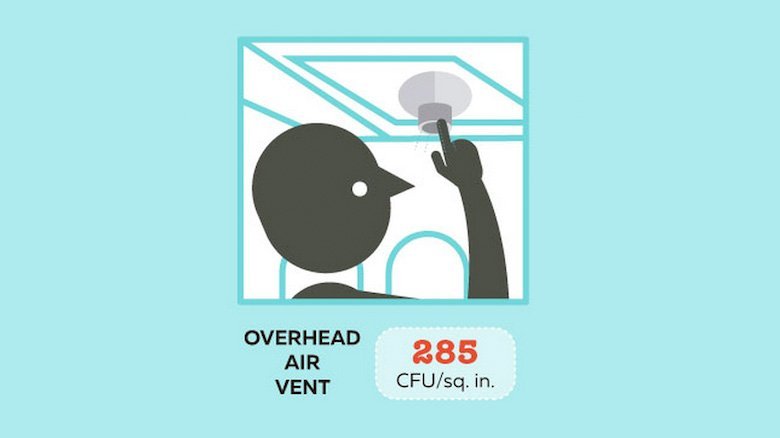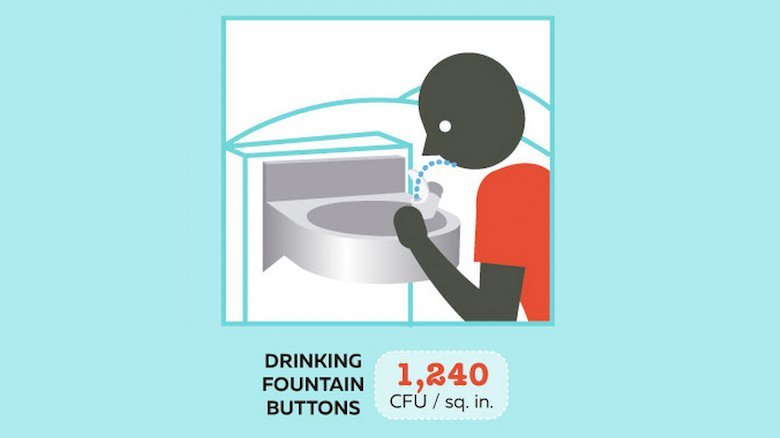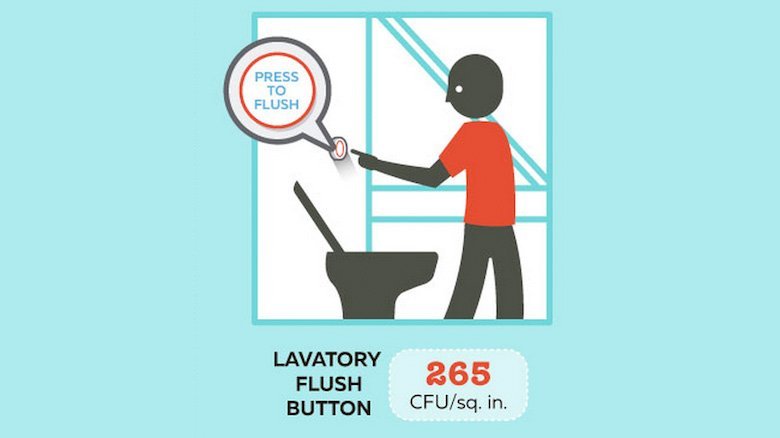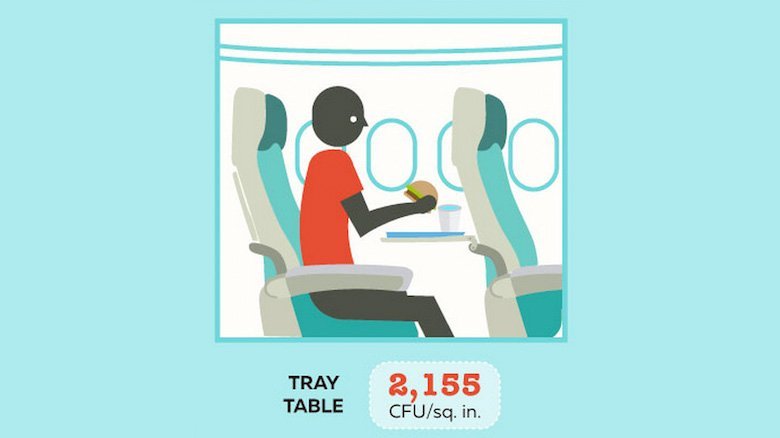There’s no better way to test your body’s immune system than by subjecting it to air travel.
With all those enclosed spaces, recirculated air and non-stop streams of people, airports and planes are prime breeding grounds for bacteria.
But which surfaces are the dirtiest of all?
Website Travelmath.com sent a microbiologist to take 26 samples from five U.S. airports and four flights by two major carriers — although it didn’t specify which ones.
According to the lab results, the airplane tray table was the dirtiest of all the locations and surfaces they tested.
Tested tray tables were found to have an average of 2,155 colony-forming units (CFUs) per square inch.
“Since this could provide bacteria direct transmission to your mouth, a clear takeaway from this is to eliminate any direct contact your food has with the tray table,” said Travelmath’s report on the findings.
Coming second on the dirty list were airport drinking fountain buttons, followed by airplane overhead air vents.
The list
Here’s the full list of the dirtiest places and surfaces on airplanes and at airports:
1) Tray table: 2,155 CFU/sq. in.
2) Drinking fountain buttons: 1,240 CFU/sq. in.
3) Overhead air vents: 285 CFU/sq. in.
4) Lavatory flush buttons: 265 CFU/sq. in.
5) Seatbelt buckles: 230 CFU/sq. in.
6) Bathroom stall locks: 70 CFU/sq. in.
So why are tray tables the biggest harbingers of sickness?
Travelmath said this might have something do with airline staff having little turnaround time between flights to actually give seats a proper scrub down.
Washrooms, on the other hand, are cleaned frequently.
Before you cancel that next flight, bear in mind there’s a silver lining to the otherwise nasty findings.
Though the study didn’t specify which kinds of bacteria were found, Travelmath said all 26 samples from airports and planes were negative for the presence of fecal coliforms such as E. coli, which can potentially be infectious.





